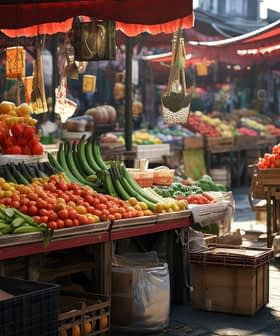UK Food Safety Concerns Remain Despite New Inspections Framework
Food policy experts fear that new Food Standards Agency measures don't adequately address food safety concerns after the Brexit.
The UK’s Food Standards Agency is preparing to implement a new risk management framework to address changes in food safety laws due to Brexit, amid concerns that leaving the EU will result in lower food standards and an influx of low-quality imports. Policy makers and researchers warn that failure to adopt EU safety rules could lead to a decline in food safety standards in the UK, as the country pursues trade deals with countries that have weaker regulations such as the USA.
The United Kingdom’s Food Standard’s Agency is set to introduce a new risk management framework that it hopes will tackle the changes expected to occur in food safety law. This comes as the United Kingdom’s government proceeds with its plan to withdraw from the European Union, which will also lead to removing itself from the leadership of Europe’s Food Safety Authority in just 20 months’ time.
Serious risks that standards of food safety will decline if the UK ceases to adopt EU safety rules.
Many key policy makers and researchers fear that Brexit will have catastrophic consequences for the UK’s food safety standards, resulting in relaxed food laws and food trade deals that create lower food standards. It is feared this will eventually lead to the market being flooded with cheap, low-quality imported products from countries with lower quality regulations such as China and the USA.
Currently, a third of the UK’s food supply is brought in from the European Union, and the country’s withdrawal from the EU means that a large food trade partnership dissolved. According to the Food Standard’s Agency, new regulations are being drafted as part of a proactive approach to address risks present in the current regulatory system before an actual crisis occurs.
It will rely on indicators and data to determine the risk being presented by food businesses, evaluating the behavior and culture of the businesses in question. These new regulations will provide regulatory assurance that the Food Standard’s Agency hopes will improve standards and reduce administrative hassles while enforcing action against businesses that don’t comply.
As part of this process, businesses across the food chain will be required to participate in an enhanced registration system that will require more detailed information from them. This will be used to better segment businesses and the system will favor those with a history of compliance – meaning they will face less frequent and robust inspections.
Despite these measures, many leading researchers feel not enough it being done to address how Brexit will impact food safety in the United Kingdom. A recent paper published by researchers at three leading UK universities cites 16 major issues that they believe the government will face come March 2018 that have “the potential to threaten UK food resilience and security.”
The paper, “A Food Brexit: time to get real – A Brexit Briefing,” features input from Tim Lang (a professor of Food Policy at the University of London’s Centre for Food Policy), Erik Millstone (professor of Science Policy at the University of Sussex’s Science Policy Research Unit) and Terry Marsden (professor of Environmental Policy and Planning and Director of Sustainable Places Research Institute at Cardiff University’s School of Regional Planning and Geography).
The paper cautions that the UK is currently suffering from many issues relating to food, labor, agriculture and supply that will all be drastically impacted by ‘Food Brexit’ and current measures are not sufficient to address the upcoming impact this will have on all aspects of food safety and security.
The authors go on to state that there are “serious risks that standards of food safety will decline if the UK ceases to adopt EU safety rules, and instead accepts free-trade agreements with countries with significantly weaker standards.”
The United Kingdom has already begun negotiating a future trade deal with American suppliers of poultry, dairy and meat which many have pointed out do not currently meet the quality standards outlined by the European Food Safety Authority as they contain pesticides, banned flavorings and more.









